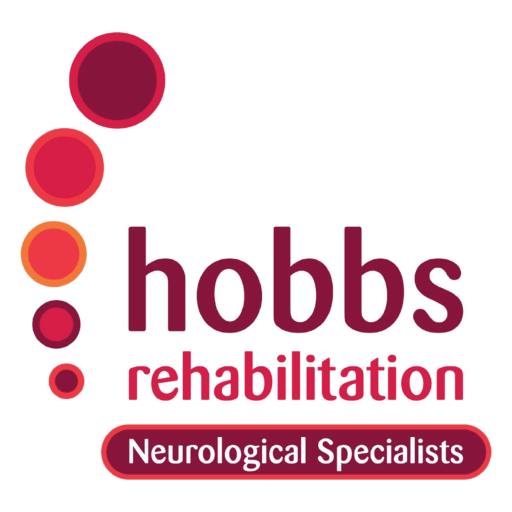Before his condition, Nigel lived a very outgoing and vibrant life. As a proud father and grandfather, he cherished every moment spent with his large, lively family. Whether it was the chaos of family dinners, days at the beach being buried up to his head in sand, flying kites, or adventurous picnics in the local woodland, Nigel was always at the heart of the action.
Professionally, Nigel was also always in the hustle and bustle. Working as an exhibitionist, he travelled across the country to demonstrate massage equipment at various events. He loved his work, not just because he took full advantage of the products, but because he had the opportunity to meet unique people and explore new places, something Nigel had always enjoyed.
One ordinary evening in June, 2024, Nigel had returned home from a long exhibition day and was enjoying a cup of coffee when he suddenly noticed that he was unable to stand from the chair. Struggling to move his legs, his wife immediately called for an ambulance and once the paramedics arrived, he was taken to Salisbury hospital, under the presumption that he’d had a stroke. Once in hospital, Nigel was later diagnosed with Guillain-Barré syndrome (GBS) – a neurological condition that Nigel and his wife had never even heard of prior to his diagnosis.
While at hospital, Nigel’s condition gradually worsened as the GBS took hold; he experienced severe difficulty breathing, speaking, swallowing, and moving any of the muscles in his body, so he was moved to the ICU. It was here that he received his first round of physiotherapy, which began to make measurable changes in his physical health. However, after being transferred to two more hospital wards, the level of intensive therapy input that Nigel needed was not able to be resourced. Nigel grew increasingly frustrated with his lack of progress, and became determined to pursue more intensive and specialist neurological physiotherapy, which led to him making an application for NHS funding at Hobbs Rehabilitation.
Just one week after his NHS funding was approved, Nigel began intensive inpatient rehabilitation at Hobbs Rehabilitation at Laverstock Care Centre, in November 2024. The first priority for our specialist neurological therapists was to help Nigel regain the level of function he had while he was at hospital. Once that baseline was reestablished, he began to make consistent and meaningful progress. Reflecting on the start of his journey, Nigel remarked, “The first thing you have to be is patient and determined.”
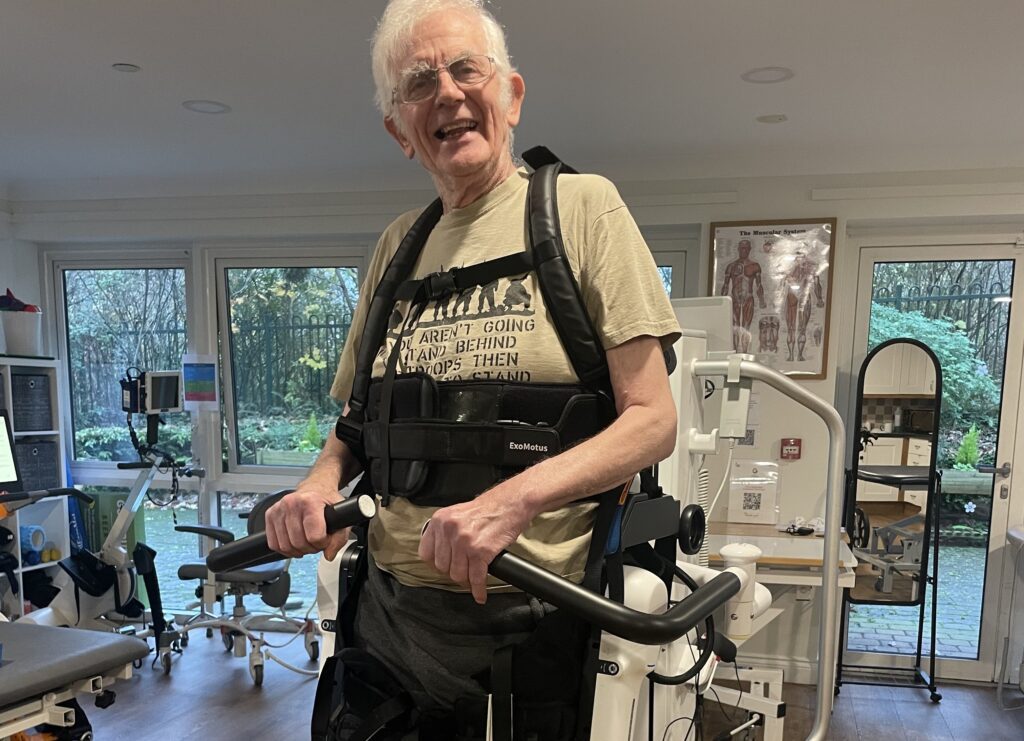
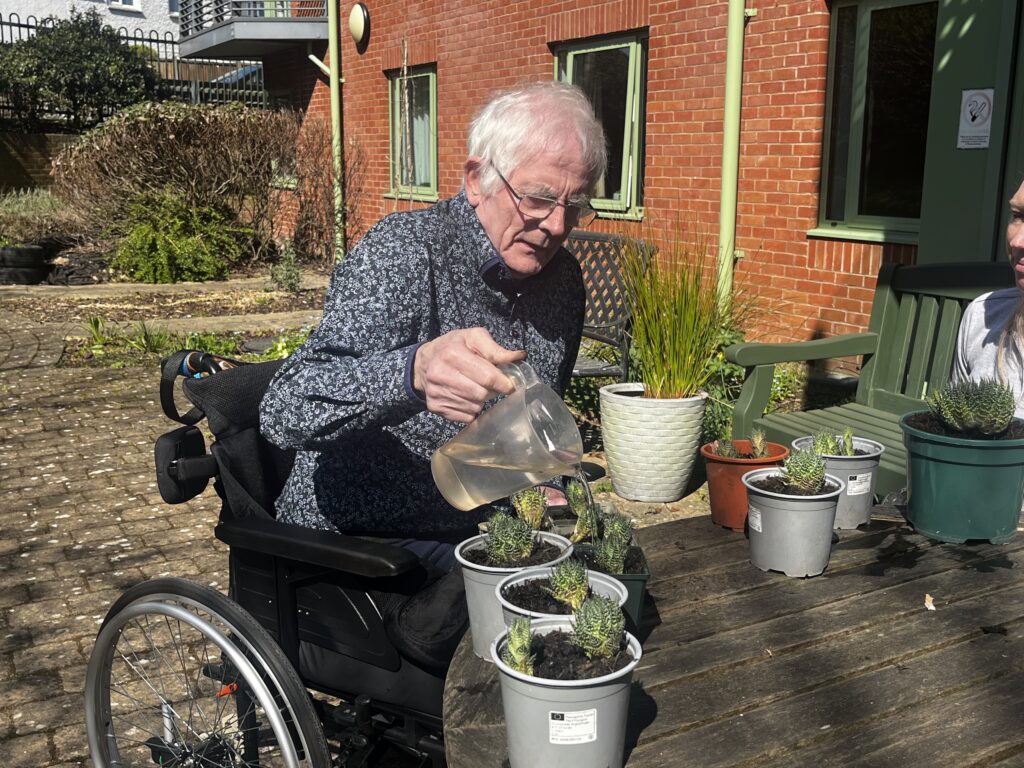
Nigel’s main goal during rehabilitation was to improve his overall strength, mobility, and independence through a combination of neurological physiotherapy and occupational therapy. Motivated by a strong desire to walk again, he made a promise to his family: “I promised my children and grandchildren that they would not remember me in a bed. I’m not going to stay the way I am – I will walk.”
The dedicated specialist team at Laverstock began by tailoring Nigel a treatment programme to improve his range of motion and muscular strength, with structured progression toward functional aids, such as the Arjo Encore standing aid, the Sara Stedy active hoist, and slide board transfers. His sessions also emphasised hand and wrist dexterity to enable Nigel to feel more confident and independent completing daily tasks, such as using his phone, eating, and doing the buttons up on his shirts. “The physios here are quite honestly absolutely brilliant. Whereas before I couldn’t clasp my right hand, now I can.” Taking it one step at a time, Nigel started seeing a real difference in his ability to control his movement.
A key part of Nigel’s intensive rehabilitation involved the use of neurotechnology to further support and enhance his mobility. For upper-limb work, he used the ExoMotus M2 Pro, a device designed to improve control, range, and strength through targeted hand movements. It features interactive games, such as moving the arm side to side to hit virtual targets, which Nigel particularly enjoyed. He found that focusing on playing and trying to beat the games made the exercises feel less strenuous and helped him achieve the necessary movements more easily. It also gave him the opportunity to lean into his competitive and playful side by competing against the Hobbs team!
His lower-limb training was supported by the OMEGO bike and the ExoMotus M4 exoskeleton for standing and stepping practice. Initially, Nigel found the exoskeleton daunting because his mind was “all over the place” and his brain had forgotten how to walk. However, with each session his mind gradually adjusted to the technology, and he started to reconnect with the movements his body needed to make. For Nigel, it became clear that recovery began with his mindset; focusing mentally on getting better was the first step toward physical improvement.
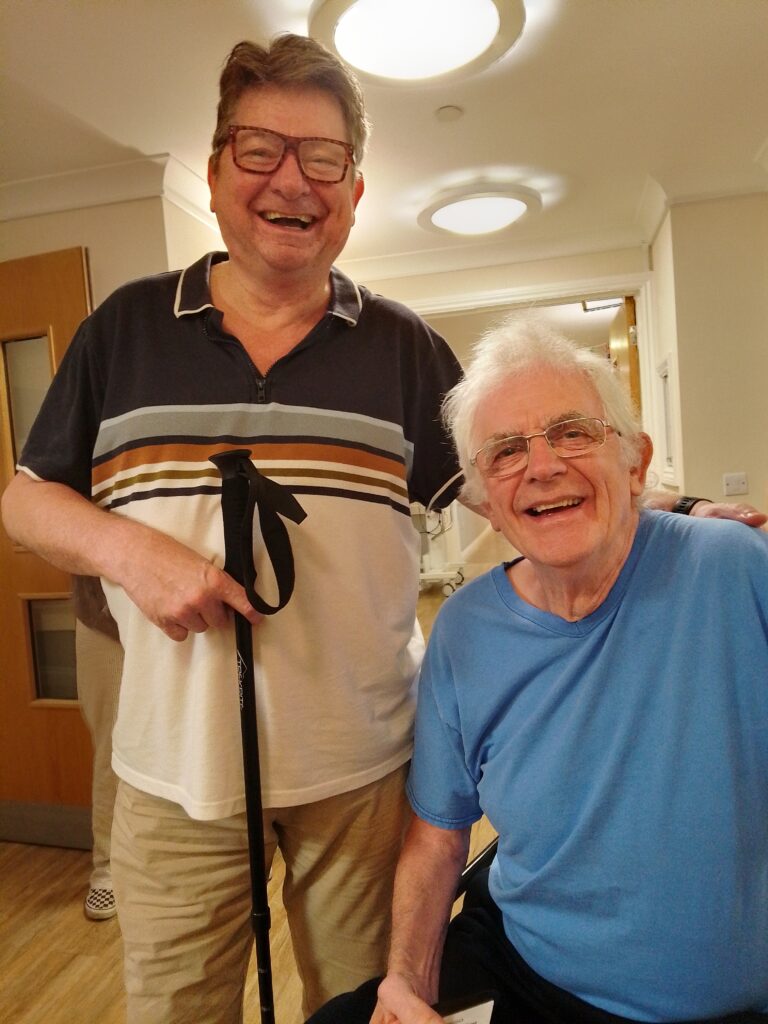
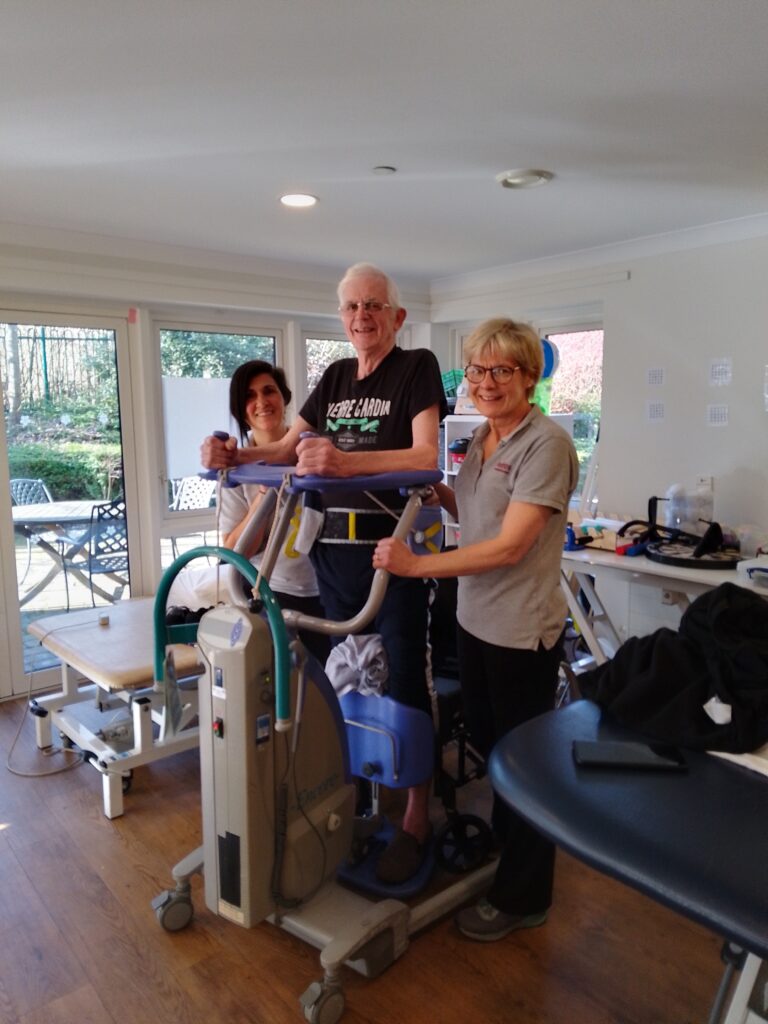
Since beginning his rehabilitation with Hobbs Rehabilitation at Laverstock Care Centre, Nigel has made immense progress. He can now complete standing aid transfers confidently, walk short distances with a Zimmer frame and assistance, and even stand independently. His functional ability in daily tasks has also improved significantly, he is now able to iron, use his phone, eat, and drink with much greater ease.
Nigel’s bright and mischievous personality is well-known amongst everyone at Laverstock. “I want everyone to feel happier having met me than before, so we have a lot of fun here, I joke around unbelievably. I will be forever grateful for the work that these people have done and the way they have looked after me. And that extends beyond the physio.”
